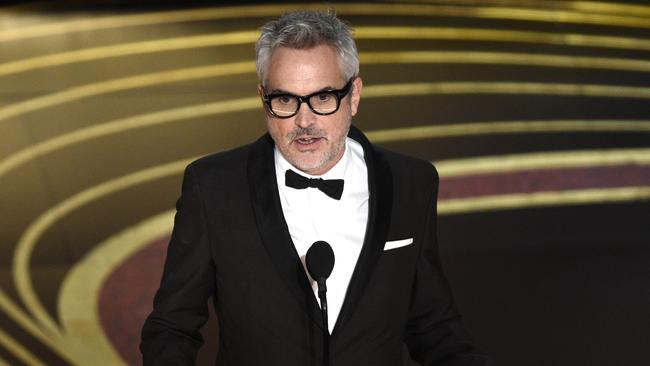The real reason Green Book won Oscar for Best Picture
The Academy Awards overlooked a far superior film, and chose the winner for the top gong in an act of self-preservation for the traditional Hollywood movie business, writes Leigh Paatsch.
Rendezview
Don't miss out on the headlines from Rendezview. Followed categories will be added to My News.
Well, after months of hype and hoopla, the Academy Awards are over for another year.
The overall show — as a broadcast spectacle at least — was a marked improvement on the dull, sluggish and rather predictable offerings that have been served up in recent years.
The complete absence of an anchoring host, along with a near-ruthless intent by ceremony producers to pick up the pace and keep the event moving, paid real dividends for the hundreds of millions watching worldwide.
However, when it comes to the Oscars’ long-held reputation as the ultimate showcase for the finest movies made in a calendar year, that renown is now hanging by a very thin thread.
The surprise result for Best Picture spotlights the precarious state in which the Academy of Motion Picture Arts and Sciences (AMPAS) now finds itself in its ongoing bid to remain relevant.
In what many observers considered to be a boilover, the feel-good race-relations period piece Green Book snatched the biggest prize of the night from the hot favourite, the highly atmospheric Mexican drama Roma.
MORE FROM LEIGH PAATSCH: Green Book a feelgood movie of the highest calibre

Both were fine films in their own right, effortlessly achieving what they had set out to do with the stories they wished to tell.
However, on purely cinematic grounds, Roma should have a won by not just a street, but a few city blocks.
Green Book is the equivalent of a trusty, reliable ute with plenty of kilometres on the clock, but a banging new paint job that is pleasing to the eye. It gets you where you need to go. No more, no less.
Roma, by comparison, is a luxury car that has just rolled off the assembly line, innovatively designed with every component in its construction precision-tooled to perfection. It delivers a wondrous ride you’ll never forget.

If you saw ‘em side-by-side in the same showroom, there is only one possible choice to make.
Oscars voters had other ideas, and it is not hard to understand what they must have been thinking as their pencils hovered over the ballot.
A vote cast for Green Book was an act of self-preservation for the traditional Hollywood movie business.
A vote cast for Roma — a movie produced by the streaming platform Netflix with an unlimited budget — would have been like putting out the welcome mat for someone who intends to burn your house down.
MORE FROM LEIGH PAATSCH: Instant classic, but A Star is Born isn’t a Best Picture winner
Netflix’s aggressive disruption of how, when and where people watch their movies has Hollywood rightly soiling itself.

With its seemingly bottomless coffers and massive international subscriber base, Netflix is already well advanced with its campaign to reduce the multiplexes to rubble.
Handing over Best Picture to Roma — which would have been both the first foreign language victor and the lowest-grossing winner of all-time — was just a bridge too far for Hollywood.
Fair play to Green Book, though. Just as everybody loves a scrappy underdog story, it is also a very enjoyable movie that everybody happens to love.
Leaving aside the jittery disposition of Oscars voters, is certainly not Green Book’s fault that the Academy Awards is working to a broken, outdated model.
A look at results over the past decade reveals only certain types of movies — generally quasi-art house productions that tick a small number of prestige boxes — have a genuine shot of taking home a gold statuette.

With a majority of winning titles only ever drawing minor business at the box office, the general public is being invited to celebrate the achievements of movies they have already chosen not to see.
Doesn’t sound like much of a party, does it?
The Oscars do not have to be a straight popularity contest. AMPAS already knows this all too well, having unsuccessfully tried to introduce a Most Popular Film category this year before the idea was barbecued to a crisp on social media.
Nevertheless, for movies like A Star is Born and Black Panther — which both showed blinding creative flair and resonated powerfully with the viewing public — to be completely shut out of legitimate Best Picture contention indicates something is wrong.
Leigh Paatsch is the national film critic for News Corp.


